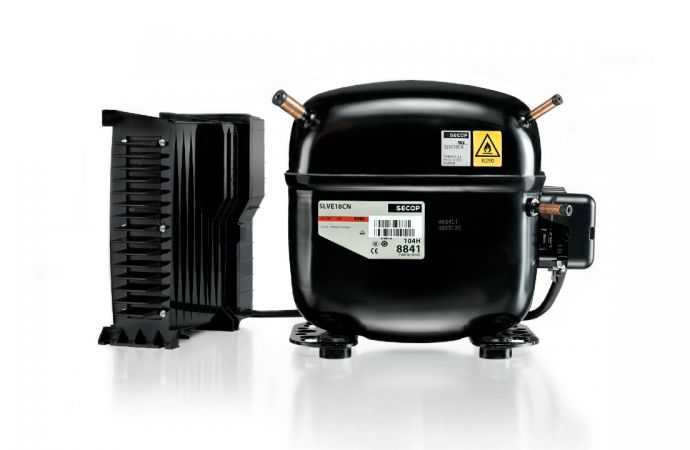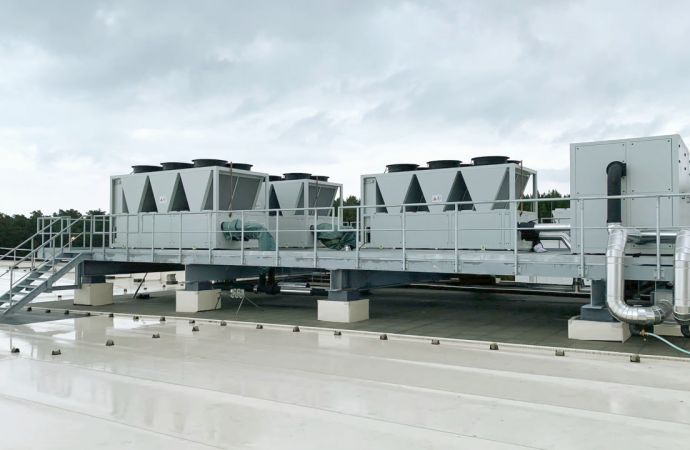ECOS calls for use of natural refrigerants, not HFOs and other new F-gases, whose climate impact is often understated.

European Commission, Brussels, Belgium
In a new briefing, ECOS (Environmental Coalition on Standards), a Brussels, Belgium-based NGO, is calling for the European Commission (EC) to evaluate the “lifecycle GWP” of HFC refrigerant alternatives, which considers the climate impact of their manufacturing processes and atmospheric degradation products, in addition to their direct global warming effect.
The briefing – “One step forward, two steps back: A deep dive into the climate impact of modern fluorinated refrigerants” – is targeting the EC as it prepares a proposed revision to the European Union’s F-Gas Regulation, which organizes the phase down of HFCs in the EU.
The refrigerants targeted by the ECOS briefing include “modern fluorinated refrigerants” such as HFOs, HCOs (hydrochloro-olefins) and HCFOs hydrochlorofluoro-olefins) and low-GWP HFCs and their mixtures. These refrigerants “contribute to climate change through both the carbon footprint of their manufacturing, as well as their degradation once they are emitted into the atmosphere,” the briefing says.
“Even if new refrigerants have a low GWP, there exist a number of other climate impacts coming from their production and their degradation in the atmosphere,” says the ECOS briefing. “These impacts, however, are mostly ignored by policymakers.” Moreover, it adds, information about the full impact of refrigerants is scarce, and the way it is presented is sometimes misleading.”
Some low-GWP HFCs and HFOs, touted as valid alternatives to high-GWP HFCs, “degrade into the same substances that they were supposed to replace,” such as R23 (100-year GWP of 14,800), says the ECOS briefing. The briefing explains that “modern HFCs and HFOs” degrade primarily to carbonyl fluoride and trifluoroacetaldehyde, with the latter further degrading into R23.
ECOS is also urging the EC to adopt 20-year measures of GWP instead of conventional 100-year values. The 20-year GWP highlights “the drastic global warming impacts of individual substances in a shorter timeframe, and provide[s] policymakers and the public with an accurate snapshot of the short-term climate benefit of fast action on HFCs,” says ECOS in the briefing.
In addition, ECOS argues that specific measures and thresholds used in policies “need to be adapted as our knowledge of GWP values of these gases develops.” This would include “a continuous and dynamic review process.”
The ECOS briefing includes a literature review and available public data, and illustrates “the lack of disclosure of information by manufacturers.”
Choose natural refrigerants
Given the HFC phase down taking place in Europe and around the world, ECOS encourages companies to adopt “truly future-proof alternatives, such as natural refrigerants and, more particularly, hydrocarbons.”
Natural refrigerants, also including CO2 (R744), ammonia/NH3 (R717), water and air “not only have a low-GWP, but also a very low manufacturing carbon footprint as shown in this briefing,” said ECOS.
“The new generation of fluorinated refrigerants is yet another example of a false solution that has proven unsustainable in the long term,” states the ECOS briefing. “It is now clear that policies and standards supporting low-GWP fluorinated refrigerants should only be transitional tools and contribute to the development of a high-scale usage of natural refrigerants. We must not repeat the mistakes of the past.”
Even if new refrigerants have a low GWP, there exist a number of other climate impacts coming from their production and their degradation in the atmosphere."
– ECOS
Related stories



